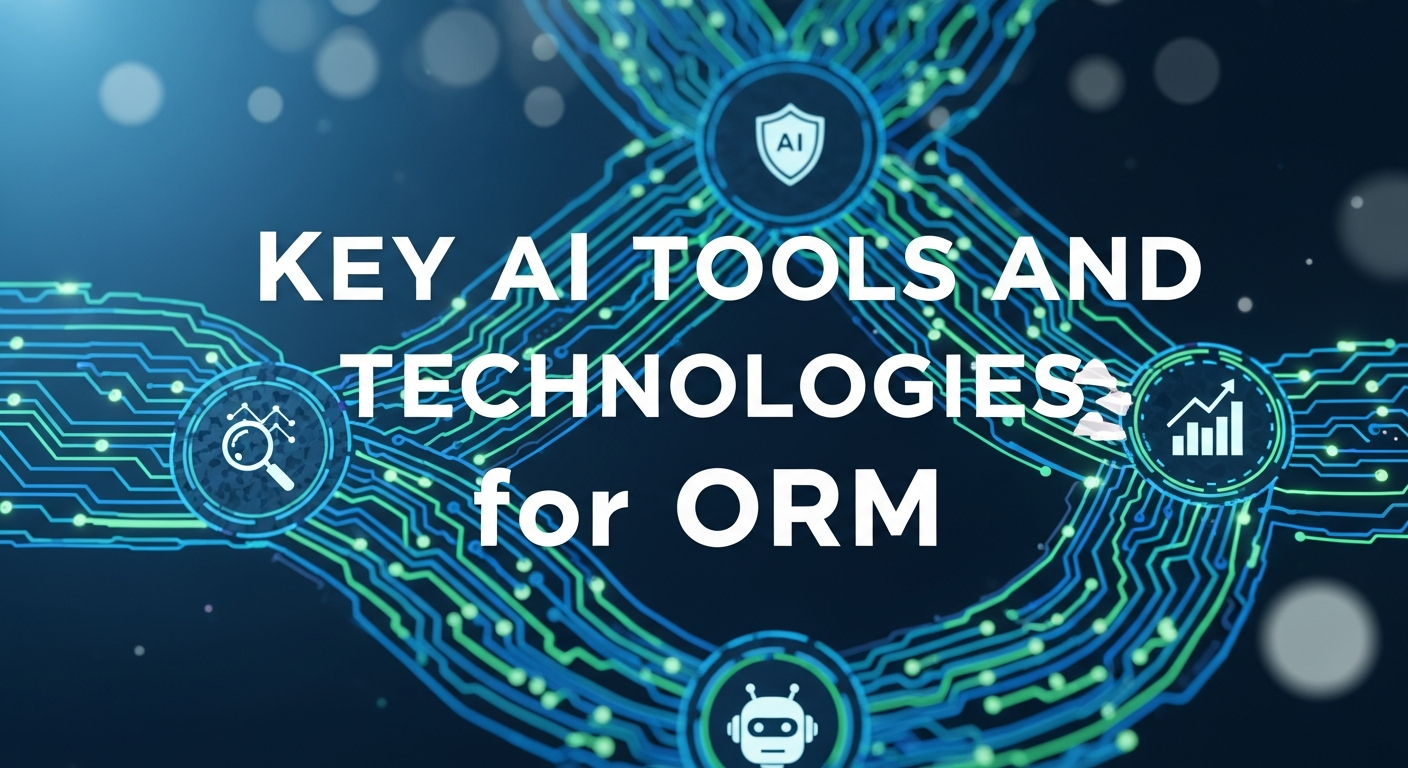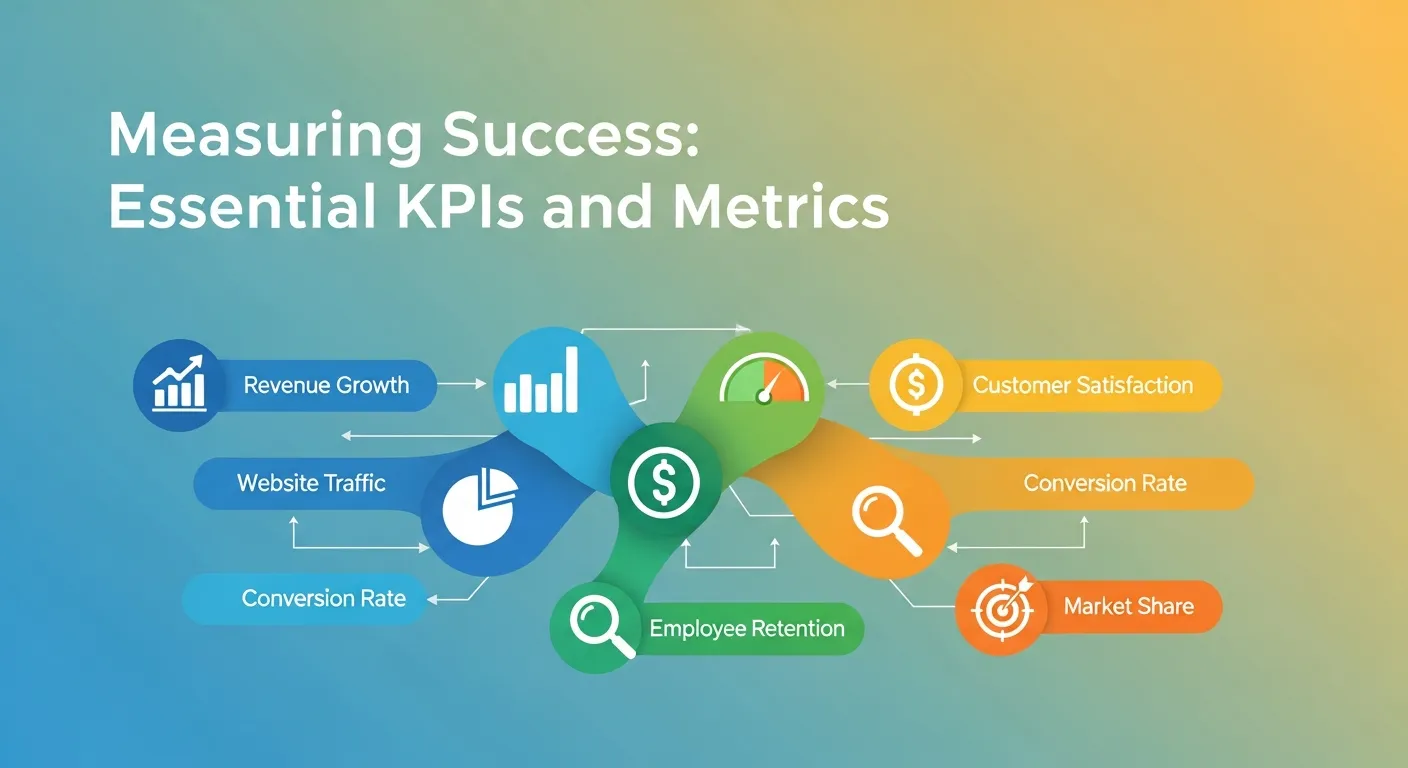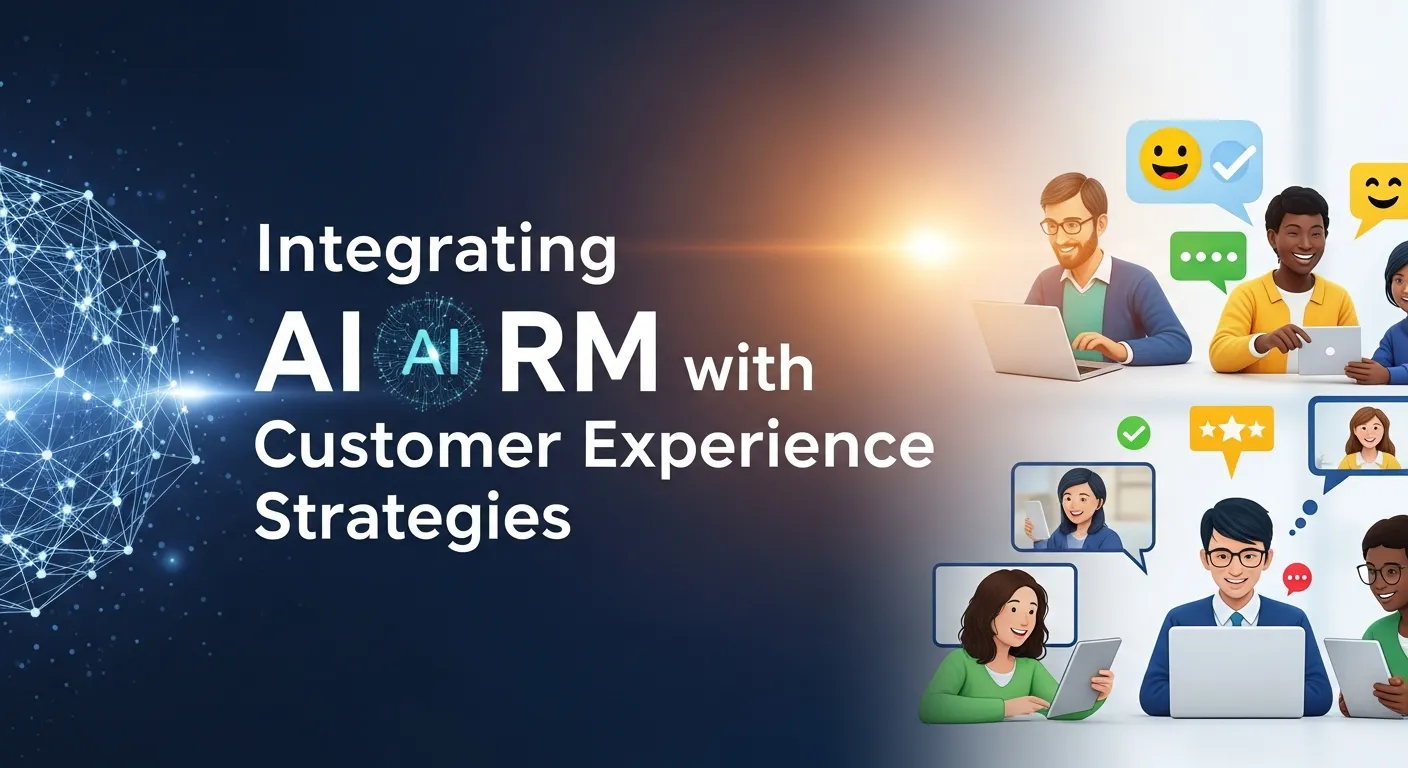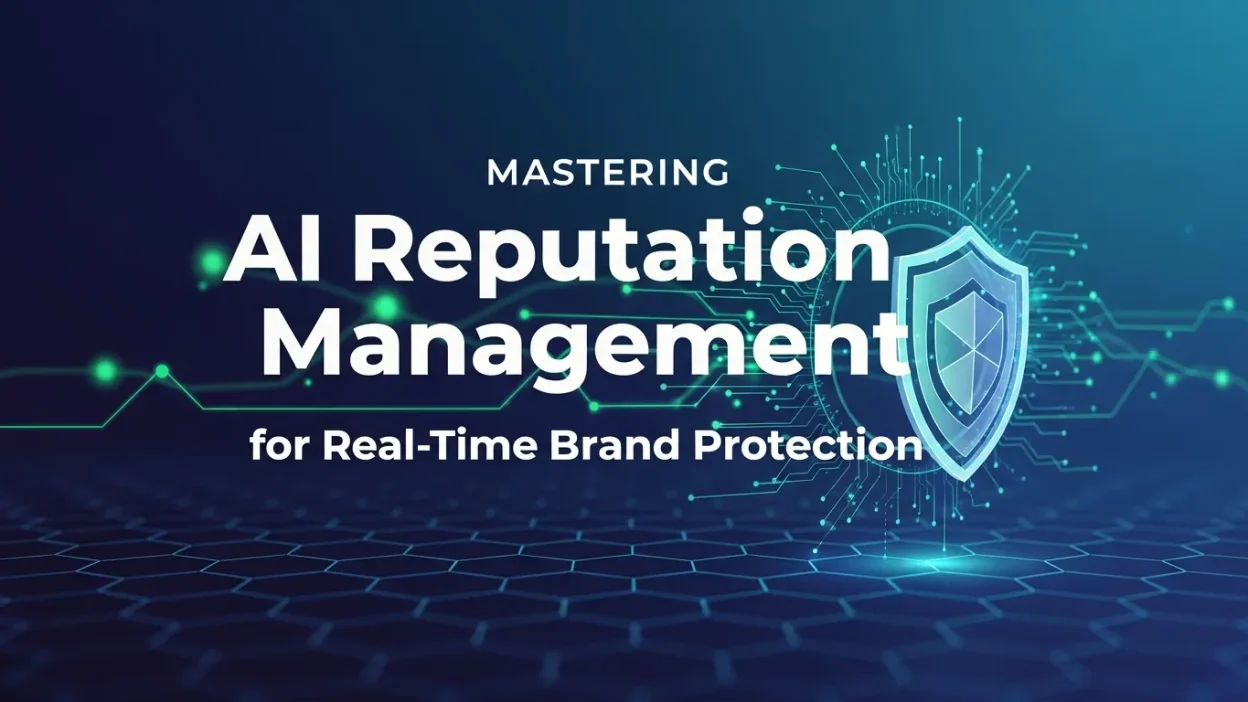AI reputation management helps brands monitor sentiment, predict risks, manage crises, and enhance customer experience. Through automation, real-time analytics, and advanced AI tools, businesses can protect their image, respond faster, improve engagement, and strengthen long-term brand trust in the digital landscape.
In today’s fast-paced digital landscape, maintaining a positive online reputation is more challenging—and more critical—than ever. Brands must navigate a constant stream of consumer reviews, social media mentions, and news articles that shape public perception in real time. Leveraging artificial intelligence in your AI reputation management strategy can provide unparalleled advantages, from automated sentiment analysis to predictive issue detection. This comprehensive guide will walk you through the essentials of AI reputation management, including benefits, tools, implementation strategies, and best practices.
What Is AI Reputation Management?
AI reputation management (ORM) is the strategic use of artificial intelligence, machine learning, and natural language processing (NLP) to monitor, analyze, and shape how a brand is perceived across digital channels. At the core of modern AI reputation management lies AI-Powered Sentiment Analysis, which enables brands to understand not just what people are saying, but how they feel when they say it.
Unlike traditional ORM approaches that rely heavily on manual review tracking and basic alerts, AI-driven systems leverage AI-Powered Sentiment Analysis to process massive volumes of unstructured data in real time. This includes customer reviews, comments, forums, articles, audio conversations, and video content. By using AI-Powered Sentiment Analysis, brands can detect emotional trends, early warning signals, and subtle shifts in public perception that humans might miss.
Another key advantage of AI reputation management is its predictive capability. Through historical data and pattern recognition, AI-Powered Sentiment Analysis helps forecast potential reputation risks before they escalate into crises. This allows organizations to move from reactive damage control to proactive brand protection.
AI reputation management platforms also use AI-Powered Sentiment Analysis to recommend intelligent response strategies. By understanding emotional intensity, urgency, and context, these systems can suggest whether an issue requires immediate escalation, personalized engagement, or long-term strategic action. This significantly improves response speed and relevance.
In addition, AI-Powered Sentiment Analysis supports scalable reputation control across regions and languages, making it especially valuable for global brands. By continuously learning from new data, AI-Powered Sentiment Analysis evolves alongside changing customer language, slang, and cultural nuances.
Ultimately, AI reputation management powered by AI-Powered Sentiment Analysis empowers brands to protect credibility, strengthen trust, and build long-term resilience in an increasingly fast-moving and opinion-driven digital environment.
Top Benefits of Leveraging AI in ORM
- 24/7 Monitoring and Real-Time Alerts: AI-enabled systems continuously scan the web, forums, and social platforms, alerting you instantly to brand mentions—both positive and negative.
- Advanced Sentiment Analysis: Using NLP, AI tools can determine the sentiment behind each mention—whether it’s positive, neutral, or negative—helping you prioritize issues that need immediate attention.
- Automated Response Suggestions: Some platforms can draft response templates based on the sentiment and context of a mention, reducing response time and ensuring consistency in brand tone.
- Scalability and Efficiency: AI reduces manual workload, allowing reputation teams to focus on high-level strategies instead of routine monitoring tasks.
The Role of Predictive Analytics in Reputation Management
One of the most powerful capabilities of modern AI reputation management is predictive analytics, which transforms reputation control from a reactive task into a forward-looking strategy. Unlike traditional monitoring that responds after damage occurs, predictive analytics—powered by AI-Powered Sentiment Analysis—enables brands to anticipate potential reputation threats before they escalate into public crises.
By combining historical data, behavioral patterns, and real-time conversation analysis, AI-Powered Sentiment Analysis helps organizations understand not only current public opinion but also where sentiment is heading next. This allows businesses to identify early warning signals, emerging narratives, and subtle emotional shifts that could impact brand trust.
How Predictive Analytics Works in ORM
Predictive analytics relies on advanced machine learning models and AI-Powered Sentiment Analysis to process large volumes of unstructured data across digital channels. Key mechanisms include:
-
Trend Detection:
AI systems analyze discussions across social platforms, review sites, forums, and news outlets to uncover emerging topics related to your brand, competitors, or industry. Through AI-Powered Sentiment Analysis, these discussions are evaluated for emotional intensity and direction. -
Risk Scoring:
Each mention is assigned a risk score based on sentiment polarity, emotional strength, source authority, reach, and engagement velocity. AI-Powered Sentiment Analysis ensures that high-impact negative conversations are flagged before they gain traction. -
Scenario Modeling:
Using predictive modeling, AI simulates how audiences might react to certain events—such as product issues, pricing changes, or controversial statements. Supported by AI-Powered Sentiment Analysis, this helps brands prepare response strategies aligned with audience emotions. -
Resource Allocation:
Predictive insights allow organizations to focus their teams and budgets on high-risk issues while monitoring lower-impact conversations. This makes proactive reputation management more efficient and scalable.
Real-World Example
Imagine an influencer posts a mildly critical comment about your product. On its own, the comment seems insignificant. However, AI-Powered Sentiment Analysis detects growing engagement, increasing emotional negativity, and similar complaints appearing elsewhere. Predictive analytics then forecasts a high probability of the issue trending. Armed with this insight, your team can intervene early—clarifying misinformation, engaging transparently, or offering solutions—before the narrative escalates.
Why Predictive Analytics Matters
By integrating predictive analytics with AI-Powd Sentiment Analysis, reputation management evolves into a strategic business function. Brands can:
-
Prevent crises instead of reacting to them
-
Protect long-term brand equity and customer trust
-
Align reputation strategy with customer experience and business goals
-
Support sustainable, proactive reputation management at scale
Ultimately, predictive analytics powered by AI-Powered Sentiment Analysis allows organizations to stay ahead of public perception, turning uncertainty into foresight and potential risks into controlled, manageable conversations.
Advanced AI Techniques Transforming ORM
Beyond basic monitoring and sentiment analysis, advanced AI techniques are now revolutionizing online reputation management. These techniques help brands go beyond reactive responses and achieve truly strategic reputation control.
1. Natural Language Understanding (NLU)
NLU is a step beyond traditional NLP. While NLP focuses on text analysis, NLU interprets meaning, intent, and context. For example:
- Detecting sarcasm or humor in social media posts
- Identifying nuanced customer dissatisfaction, even when negative sentiment is not explicit
- Recognizing indirect mentions of the brand, such as “I expected better service from them.”
2. Machine Learning for Predictive Insights
Machine learning models can identify patterns in historical data to predict emerging reputation risks. Some key applications include:
- Predicting spikes in negative reviews based on new product launches
- Forecasting social media virality potential for posts that mention the brand
- Suggesting preemptive content strategies to mitigate negative sentiment
3. AI-Powered Content Generation for Reputation Management
Generative AI can assist in crafting messages that align with brand voice and tone. Applications include:
- Drafting responses to reviews, social mentions, or complaints
- Creating press releases or official statements in response to emerging crises
- Generating FAQs and educational content to address common concerns
4. Network Analysis for Influencer & Sentiment Mapping
Advanced AI algorithms can map the spread of sentiment across networks. Brands can:
- Identify key influencers driving positive or negative perception
- Track how sentiment propagates across platforms
- Strategically engage influencers to amplify positive messages or neutralize negativity
Impact:
By using these advanced AI techniques, brands can proactively manage reputation, anticipate risks, and influence public perception before small issues escalate into full-blown crises.
Key AI Tools and Technologies for ORM

When selecting AI tools for your reputation management strategy, consider the following categories:
- Sentiment Analysis Engines: Tools like Brand24, Lexalytics, and MonkeyLearn specialize in analyzing text sentiment across various channels.
- Social Listening Platforms: Solutions such as Talkwalker and Meltwater aggregate social media mentions and apply AI to identify trends and influencers.
- Review Management Software: Platforms like Yext and Podium use AI to collect and respond to online reviews efficiently.
- Chatbots and Virtual Assistants: AI chatbots powered by tools like Intercom or Drift can engage customers in real time, capturing feedback before it’s posted publicly.
AI-Enhanced Crisis Management
Reputation crises can emerge suddenly, sometimes from a single viral post. AI can play a crucial role in managing these crises efficiently.
Key Features of AI in Crisis Management:
- Rapid Detection: AI-driven monitoring systems detect unusual spikes in negative mentions or engagement, triggering instant alerts.
- Automated Response Templates: Pre-approved AI-generated responses can be deployed immediately to control the narrative while human teams craft detailed replies.
- Impact Assessment: AI analyzes the reach, sentiment, and demographics of the crisis, helping PR teams prioritize their interventions.
- Influencer & Media Tracking: Identify key influencers spreading misinformation or negative sentiment, enabling targeted communication.
Table: AI vs. Traditional Crisis Management
| Feature | Traditional ORM | AI-Powered ORM |
|---|---|---|
| Monitoring Speed | Manual, periodic checks | 24/7 automated scanning |
| Response Time | Hours to days | Minutes to hours |
| Trend Detection | Based on historical experience | Predictive and real-time |
| Data Analysis | Limited to small datasets | Large-scale, multi-channel analysis |
| Proactivity | Mostly reactive | Proactive intervention |
By combining AI insights with human judgment, brands can navigate crises more efficiently, minimize damage, and even turn potentially negative situations into opportunities to strengthen customer trust.
How to Implement an AI-Powered ORM Strategy
- Define Objectives and KPIs: Establish clear goals—such as reducing negative sentiment by 30% within six months—and set measurable KPIs.
- Select the Right Tools: Evaluate AI platforms based on features, integration capabilities, and scalability.
- Integrate Data Sources: Connect your AI tools to review sites, social media accounts, news feeds, and customer support systems.
- Train Your Models: Provide historical data and refine sentiment parameters to improve accuracy.
- Establish Response Protocols: Create guidelines for automated and manual responses, ensuring a consistent brand voice.
- Monitor and Optimize: Review AI-generated insights regularly, adjust rules, and retrain models to adapt to evolving language and trends.
Best Practices for Real-Time Monitoring and Response
- Prioritize High-Impact Mentions: Not all mentions are equal. Focus on posts from key influencers, high-traffic publications, and critical customer feedback.
- Balance Automation with Human Touch: Use AI for routine responses, but escalate complex issues to human specialists.
- Ensure Cross-Department Collaboration: Share AI insights with marketing, customer service, and PR teams to align messaging.
- Maintain Transparency: Disclose when responses are AI-driven to build trust with your audience.
Measuring Success: Essential KPIs and Metrics

Track these metrics to evaluate the effectiveness of your AI-powered ORM strategy:
- Sentiment Score Trends: Changes in overall brand sentiment over time.
- Response Time: Average time taken to respond to negative mentions.
- Resolution Rate: Percentage of issues resolved through AI-assisted responses.
- Share of Voice: Proportion of brand mentions compared to competitors.
ROI and Business Value of AI-Powered ORM
Brands often struggle to quantify the return on investment (ROI) of reputation management. AI-powered ORM, however, provides measurable, tangible business value.
Key Areas Where AI ORM Adds Value:
- Cost Savings: Automated monitoring and response reduce the need for large manual teams.
- Revenue Protection: Proactively addressing negative sentiment prevents customer churn.
- Brand Equity Growth: Positive online reputation increases trust, customer loyalty, and brand preference.
- Operational Efficiency: Streamlined workflows allow marketing, PR, and customer service teams to collaborate effectively.
Table: Quantifying AI ORM Business Impact
| Metric | Traditional ORM | AI-Powered ORM | Business Impact |
|---|---|---|---|
| Monitoring Coverage | Limited to manual checks | 24/7 global monitoring | Early detection of issues, reduced risk |
| Response Time | Hours to days | Minutes | Faster customer resolution, higher satisfaction |
| Customer Churn Prevention | Difficult to measure | Predictive alerts to intervene | Protects revenue and brand loyalty |
| Marketing Insights | Retrospective | Real-time actionable insights | Drives data-informed campaigns |
| Cost per Mention Monitored | High | Low | Significant operational savings |
Example: A global retail brand using AI ORM noticed a surge in negative sentiment after a product launch. The AI system alerted the team within minutes, enabling them to respond with corrective messaging. This intervention prevented a potential viral backlash and saved the company an estimated $500,000 in lost sales and reputational damage.
Challenges and Solutions in AI-Driven ORM
While AI offers significant benefits, it also presents challenges:
- Accuracy Limitations: Misinterpretation of sarcasm or cultural nuances can lead to false positives or negatives. Solution: Regularly retrain models with updated, context-rich data.
- Data Privacy Concerns: Ensure compliance with GDPR, CCPA, and other regulations when collecting and processing user data.
- Over-Reliance on Automation: Too much automation may alienate customers if responses feel impersonal. Solution: Implement human-in-the-loop processes.
AI-Enhanced Crisis Management
Reputation crises can emerge suddenly, sometimes from a single viral post. AI can play a crucial role in managing these crises efficiently.
Key Features of AI in Crisis Management:
- Rapid Detection: AI-driven monitoring systems detect unusual spikes in negative mentions or engagement, triggering instant alerts.
- Automated Response Templates: Pre-approved AI-generated responses can be deployed immediately to control the narrative while human teams craft detailed replies.
- Impact Assessment: AI analyzes the reach, sentiment, and demographics of the crisis, helping PR teams prioritize their interventions.
- Influencer & Media Tracking: Identify key influencers spreading misinformation or negative sentiment, enabling targeted communication.
Table: AI vs. Traditional Crisis Management
| Feature | Traditional ORM | AI-Powered ORM |
|---|---|---|
| Monitoring Speed | Manual, periodic checks | 24/7 automated scanning |
| Response Time | Hours to days | Minutes to hours |
| Trend Detection | Based on historical experience | Predictive and real-time |
| Data Analysis | Limited to small datasets | Large-scale, multi-channel analysis |
| Proactivity | Mostly reactive | Proactive intervention |
By combining AI insights with human judgment, brands can navigate crises more efficiently, minimize damage, and even turn potentially negative situations into opportunities to strengthen customer trust.
Integrating AI ORM with Customer Experience Strategies

AI-driven reputation management is not just about mitigating negative mentions—it also directly enhances customer experience. By connecting AI ORM tools with customer engagement systems, brands can create a seamless feedback loop that improves service and fosters loyalty.
How AI Enhances Customer Experience Through ORM:
- Real-Time Feedback Capture: AI chatbots and monitoring systems detect customer issues in real time and either resolve them immediately or route them to human agents.
- Personalized Engagement: AI can suggest tailored responses based on customer profiles, purchase history, and sentiment analysis, ensuring each interaction feels personalized and attentive.
- Proactive Outreach: By analyzing feedback trends, AI identifies recurring pain points and helps brands address them before they become widespread issues.
- Customer Insights for Product Improvement: Sentiment data can highlight product or service improvements, turning social listening into actionable business intelligence.
Example: A hotel chain using AI ORM might notice recurring complaints about slow check-ins across multiple locations. By addressing the issue proactively and communicating improvements, they not only prevent negative reviews but also enhance customer satisfaction.
Integrating AI ORM with broader customer experience strategies ensures that reputation management becomes a value driver rather than just a defensive tactic.
Conclusion
AI reputation management is no longer a futuristic concept; it’s an essential component of modern brand strategy. By harnessing machine learning, NLP, and real-time analytics, businesses can proactively safeguard their reputation, respond swiftly to emerging threats, and maintain a positive brand image. Whether you’re a small startup or a global enterprise, adopting AI in your ORM toolkit will give you the competitive edge needed to thrive in the digital age.
FAQ: AI Reputation Management
1. What is AI reputation management?
AI-powered ORM uses artificial intelligence—such as machine learning, NLP, and predictive analytics—to monitor, analyze, and influence brand perception online. It automates tasks like sentiment analysis, review monitoring, trend detection, and response drafting to keep a brand’s reputation protected around the clock.
2. How does AI differ from traditional reputation management?
Traditional ORM relies heavily on manual monitoring and subjective interpretation. AI-powered ORM, by contrast:
- Monitors 24/7 across multiple platforms
- Analyzes sentiment instantly
- Detects trends and crises in real time
- Predicts future issues before they escalate
This improves accuracy, speed, and scalability.
3. Can AI respond to customers automatically?
Yes. Many AI platforms generate automated response templates for reviews, comments, and social mentions. However, brands should still use a human-in-the-loop approach for complex or sensitive issues to ensure authenticity and empathy.
4. Will AI replace human reputation managers?
No. AI enhances and accelerates reputation workflows, but humans remain essential for:
- Handling emotionally sensitive issues
- Making strategic decisions
- Overseeing high-impact crises
- Maintaining brand tone and empathy
AI acts as a powerful assistant—not a replacement.
5. What platforms are best for AI-powered ORM?
Popular tools include:
- Brand24, Lexalytics, MonkeyLearn for sentiment analysis
- Talkwalker, Meltwater for social listening
- Yext, Podium for review management
- Intercom, Drift for AI-driven customer interaction
Choosing the right tools depends on your business size, budget, and integration needs.
6. Does AI really help prevent crises?
Absolutely. AI’s predictive analytics can forecast potentially risky conversations, track viral momentum, and alert teams immediately. This early detection gives brands time to respond before problems spiral.
7. Is AI ORM suitable for small businesses?
Yes. Even small brands benefit from:
- Automated review monitoring
- Faster response times
- Reputation trend insights
- Reduced manual workload
Many affordable tools are designed specifically for small and medium businesses.
8. What challenges should I expect when using AI for ORM?
Common challenges include:
- Misinterpreted sentiment due to sarcasm or slang
- Over-reliance on automation
- Data privacy compliance issues
- Need for model retraining to maintain accuracy
With proper planning and oversight, these challenges can be effectively managed.
9. How do I measure the success of AI ORM?
Key metrics include:
- Sentiment trends
- Volume of brand mentions
- Response time
- Resolution rates
- Customer satisfaction scores
- Share of voice
Analyzing these KPIs will show whether your strategy is improving brand perception and engagement.
10. What industries benefit most from AI-powered ORM?
Industries with high customer interaction and review volume benefit the most, such as:
- Retail & eCommerce
- Hospitality & tourism
- Healthcare
- Finance
- SaaS & technology services
- Food & beverage
However, any brand with an online presence can benefit from AI ORM.
Learn more about: What Are Online Reputation Management Services & Why You Need Them





